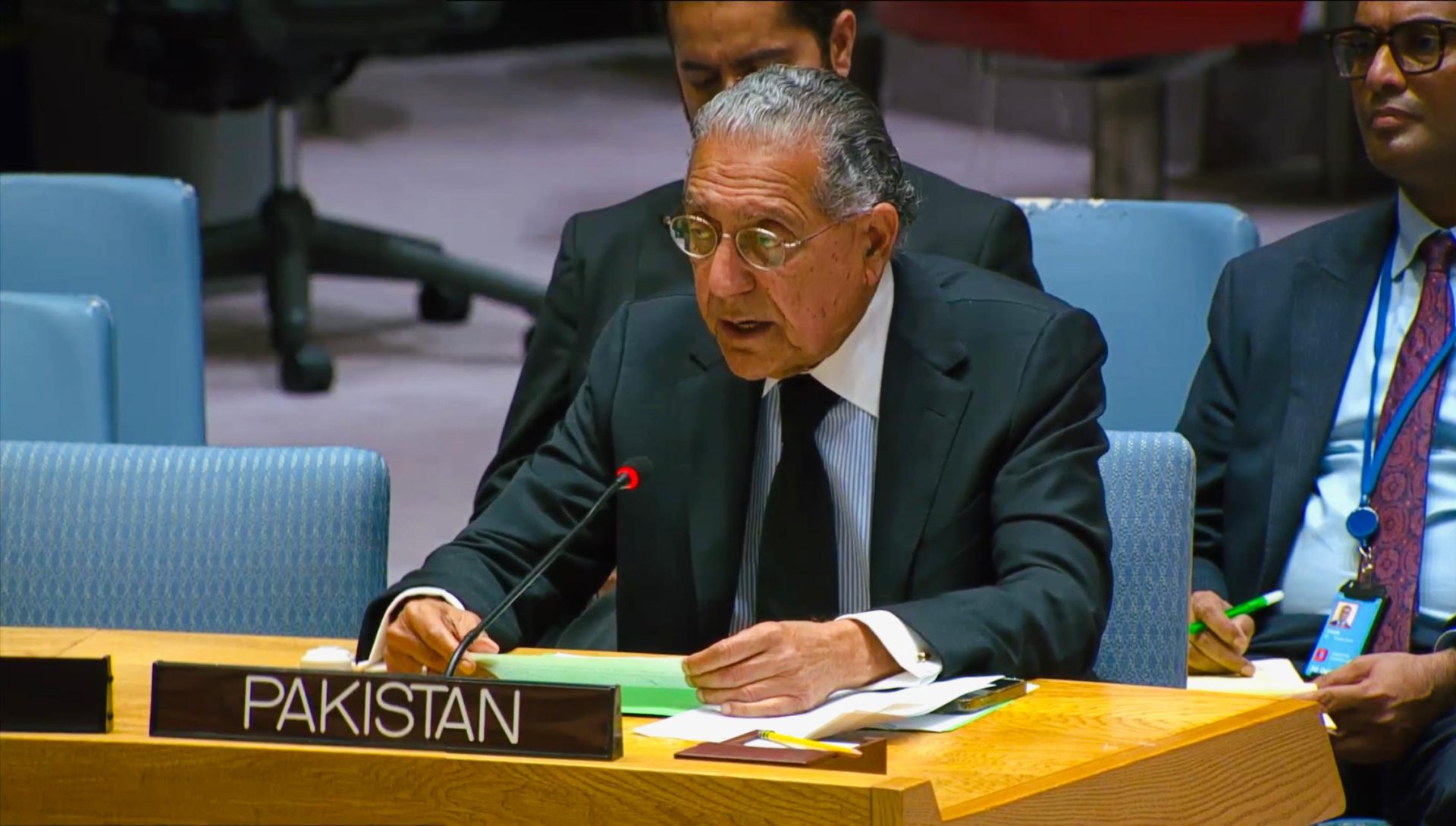
Pakistan has said that the failure to address the root causes of terrorism, and violent extremism has led to the proliferation of conflicts around the world, arguing that international strategies in this regard have largely remained flawed, ineffective and left a lot to be desired.
“The results of remote occupation are no place as clear as in involved Jammu and Kashmir and Palestine.
It is therefore the responsibility of this Council to end Israel’s genocidal war in Gaza,” Ambassador Munir Akram stated this while delivering a statement during the high-level open debate in the UN Security Council today.
Dilating upon the multifaceted factors of conflicts, Ambassador Munir Akram said the root causes of the conflicts range from the legacies of colonialism, internal struggles and external competition for scarce resources including food, and water, and interventions designed to suppress the struggle of peoples to reclaim their own political and economic rights.
While acknowledging that the provision of security and basic needs and services is essential to build social cohesion and success against the forces of violence and terrorism, Ambassador Akram highlighted the need for a comprehensive and integrated strategy, which offers regional and international support to the national efforts for conflict prevention and dispute resolution.
He said national procedures for struggle anticipation can be fruitful as it were if they are went with by other territorial and worldwide measures to address a few of the fundamental causes of clashes – destitution, unemployment, bad form, misuse of national assets, outside mediation.
Whereas naming the concept of nationally-led viciousness anticipation procedures, as sketched out in the Secretary-General’s Unused Plan for Peace, as profitable, he tossed light on Pakistan’s encounter in battling psychological warfare, expressing that “Pakistan’s overhauled National Activity Arrange to combat fear mongering, called “Azam-e-Istehkam”, depends on working with neighborhood communities to prohibit and dispose of viciousness radicalism and psychological warfare.
“In Pakistan’s experience too, fighting terrorism on our border regions was successful due to the support, assistance and participation of the local communities,” he stated.
Ambassador Munir Akram hoped that debate in the Council will inspire new “thinking” to build effective approaches to preventing conflicts, resolving disputes and building peace in the numerous countries in conflict.
The high-level wrangle about assembled by Sierra Leone centered on “Peace-building and Maintaining Peace: The Unused Plan for Peace – Tending to Worldwide, Territorial and National Perspectives of Struggle Anticipation.
Editor: Kamran Raja